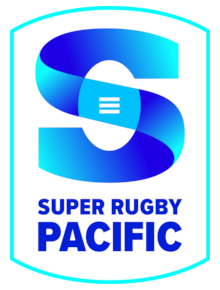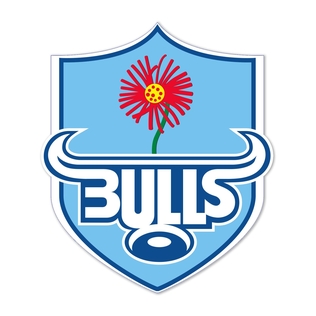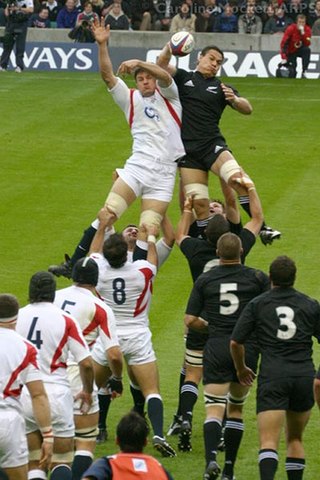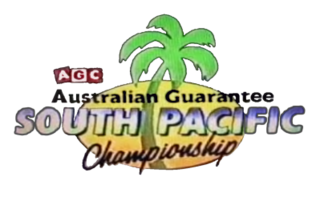
Super Rugby is a men's professional rugby union club competition involving teams from Australia, Fiji, New Zealand, and the Pacific Islands. It has previously included teams from Argentina, Japan, and South Africa. Super Rugby started as the Super 12 in the 1996 season with 12 teams from Australia, New Zealand, and South Africa, building on competitions dating back to the South Pacific Championship in 1986. The Super 12 was established by SANZAR after the sport became professional in 1995. After the COVID-19 pandemic forced the competition to split into three, the reformed competition in 2021 only included teams from Australia, New Zealand and the Pacific islands.

The Bulls, for sponsorship reasons known as the Vodacom Bulls, is a South African professional rugby union team based in Pretoria and they play their home matches at Loftus Versfeld. They compete in the United Rugby Championship, having competed in the Super Rugby competition until 2020. Prior to 1998, the Bulls competed in the then-Super 12 as Northern Transvaal, as in those years South Africa was represented in the competition by its top four Currie Cup sides from the previous season, instead of the modern Super Rugby teams.

The National Provincial Championship, often simply called the NPC, is an annual round-robin rugby union competition in men's domestic New Zealand rugby. First played during the 2006 season, it is the second highest level of competition in New Zealand alongside the Ranfurly Shield. It is organised by New Zealand Rugby (NZR) and since 2021, it has been known as the Bunnings NPC after its headline sponsor. A concurrent women's tournament is also held, the Farah Palmer Cup.

sasaThe Samoa national rugby union team represents the Samoa Rugby Union in men's international rugby union. They are also known as Manu Samoa, which is thought to derive from the name of a Samoan warrior. They perform a traditional Samoan challenge called the siva tau before each game. Samoa Rugby Union were formerly members of the Pacific Islands Rugby Alliance (PIRA) along with Fiji and Tonga. They are ranked 11th in the world.

The Fiji national rugby union team represents Fiji in men's international rugby union. Fiji competed in the Pacific Tri-Nations and now competes in its successor tournament Pacific Nations Cup. Fiji also regularly plays test matches during the June and November test windows. They have beaten the major rugby playing sides of Wales, Scotland, Australia, France, Argentina and England. The only major sides Fiji are yet to beat are New Zealand, South Africa and Ireland.

The New Zealand Barbarian Rugby Club Inc., nicknamed the Barbarians, or Baa-Baas, is a rugby union club headquartered in Kingsland, Auckland. The idea came from the concept of the Barbarian F.C.. The Barbarians played their home matches at Eden Park.

The North Harbour Rugby Union (NHRU), commonly known as North Harbour or simply Harbour, is the governing body of rugby union that encompasses a wide geographical area north of Auckland that includes North Shore City, Rodney District, the Hibiscus Coast and part of Waitakere City. There are 12 rugby clubs from Mahurangi RFC, based in Warkworth, Rodney District, in the north through to Massey the southernmost area of the union.
The Pacific Tri-Nations was the traditional rugby union series between Tonga, Fiji and Samoa. It was established in 1982 with the Samoan team, then known as Western Samoa, winning the tournament. In 2006 it was replaced by the IRB Pacific 5 Nations which was then renamed the Pacific Nations Cup.
The 2004 Pacific Rim Championship and the 2004 Pacific Cup was the 9th Pacific Cup, a rugby league tournament held between Pacific teams. The tournament was hosted in Auckland and for the first time split into two competitions; The Pacific Rim Championship between national teams and the Pacific Cup between Auckland-based selections. In the final of the Pacific Rim competition the Cook Islands defeated New Zealand Māori 46-6 while Samoa XIII defeated Tonga XIII 52–18 to win the Pacific Cup.
Tony Eion Brown is a former New Zealand rugby union footballer, who played mainly at first five-eighth. He is an assistant coach for the Japan national rugby union team, having previously been the head coach of Otago and the Highlanders in the Super Rugby competition.

Rugby union has been played in New Zealand since 1870 and is the most popular sport in the country as well as being its national sport.
The 1996 Super 12 season was the inaugural season of the Super 12, contested by teams from Australia, New Zealand and South Africa. The season ran from February to May 1996, with each team playing all the others once. At the end of the regular season, the top four teams entered the playoff semifinals, with the first placed team playing the fourth and the second placed team playing the third. The winner of each semifinal qualified for the final, which was contested between the Auckland Blues and Natal Sharks, with the Blues winning 45 – 21 to win the first Super 12 title.
Christopher Bradley Smylie is a New Zealand rugby union player. He plays in the scrum-half position for Taranaki in the ITM Cup. He was born in Greater Auckland and attended Massey High School. In 2002 he made his professional debut for North Harbour against Auckland in the National Provincial Championship. Smylie then went south and had one season for the Highlanders in 2006, off the back of a hugely impressive debut season for Otago in 2005. The following year he played for the New Zealand Māori and in 2007 saw him play for the Hurricanes in Super Rugby, before debuting in 2009 for North Harbour in the Air New Zealand Cup.

The Otago Rugby Football Union is the official governing body of rugby union for the Otago region of New Zealand. The union is based in the city of Dunedin, and its home ground is Forsyth Barr Stadium. The top representative team competes in the ITM Cup, New Zealand's top provincial competition. The union was to have been liquidated in March 2012. However a deal involving the Dunedin City Council allowed it to keep operating. Otago have won the Ranfurly Shield on seven occasions. They were the National provincial championship winners in 1991 and 1998. They have a proud record playing international teams, having defeated South Africa and the British and Irish Lions.

Rugby union in Fiji is a popular team sport and is considered to be the national sport of the country. The sport was introduced to Fiji in the 1880s. Fiji is defined as a tier two rugby nation by World Rugby. The national team has competed at the Rugby World Cup and made it as far as the quarter-finals. Their sevens team is also noted for their success, winning multiple Olympic gold medals, World Rugby Sevens Series and Rugby World Cup Sevens.

The South Pacific Championship was a rugby union competition that was introduced in 1986 and contested through to 1990. The competition featured six teams - three provinces from New Zealand; Auckland, Canterbury and Wellington, two Australian teams; Queensland and New South Wales, and one team representing Pacific Island rugby, Fiji.

Tasesa James Lavea is a New Zealand rugby union coach and former professional rugby league and rugby union footballer. He is of Samoan and Māori descent and heritage, and he coaches the 1st XV for Saint Kentigern College.
The Super Rugby competition in rugby union, including teams from Australia, Fiji, New Zealand and the Pacific Islands and, in the past, from Argentina, Japan and South Africa, is based on a "franchise" system of teams. The original member countries – Australia, New Zealand and South Africa – all have several regional franchises, while the expansion countries – Argentina, Fiji, Japan and the Pacific Islands – have/had one franchise each. The article covers specific detail as to the areas covered by each Super Rugby team. Bold denotes stadiums that are current primary stadiums for the franchises.

Sport in Oceania varies from country to country. The most popular playing sport for men in Australia is Australian rules football, while for women is netball. Australian rules football is the most popular sport in terms of spectatorship and television ratings. Rugby union is the most popular sport among New Zealanders, while in Papua New Guinea rugby league is the most popular. While, Cricket is the most popular overall sport in Oceania.
Samiuela Moli is a professional rugby union player who plays as a hooker for Super Rugby club Moana Pasifika. Born in New Zealand, he represents Tonga at international level after qualifying on ancestry grounds.














